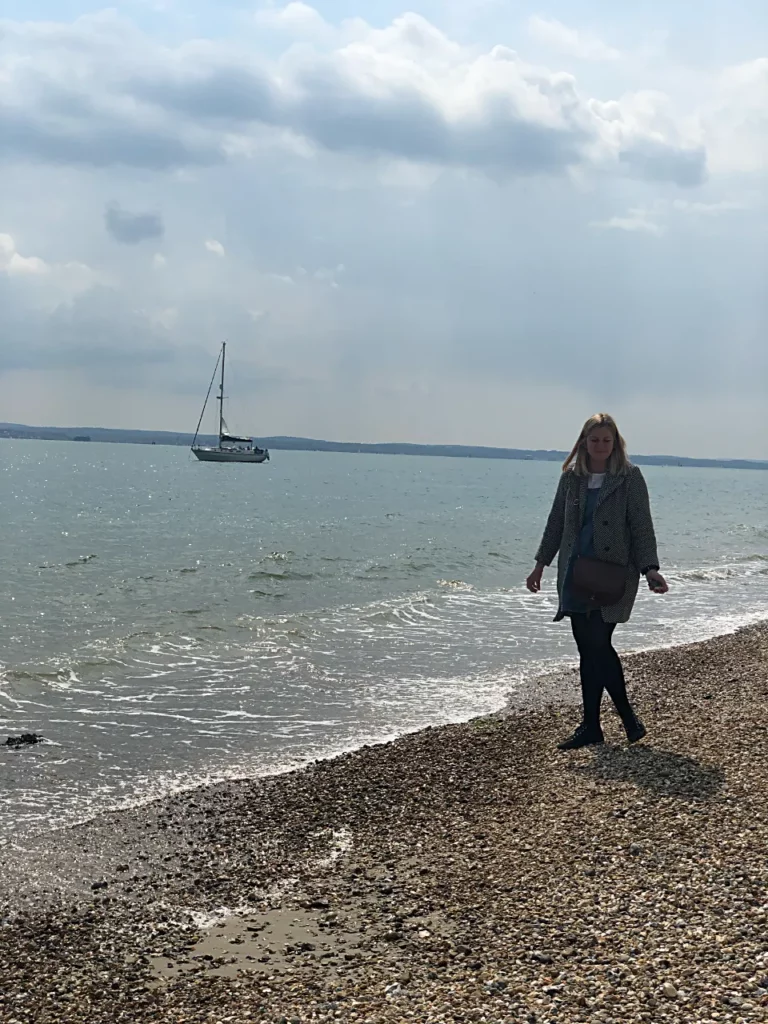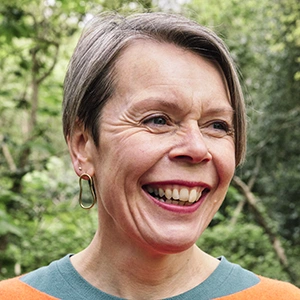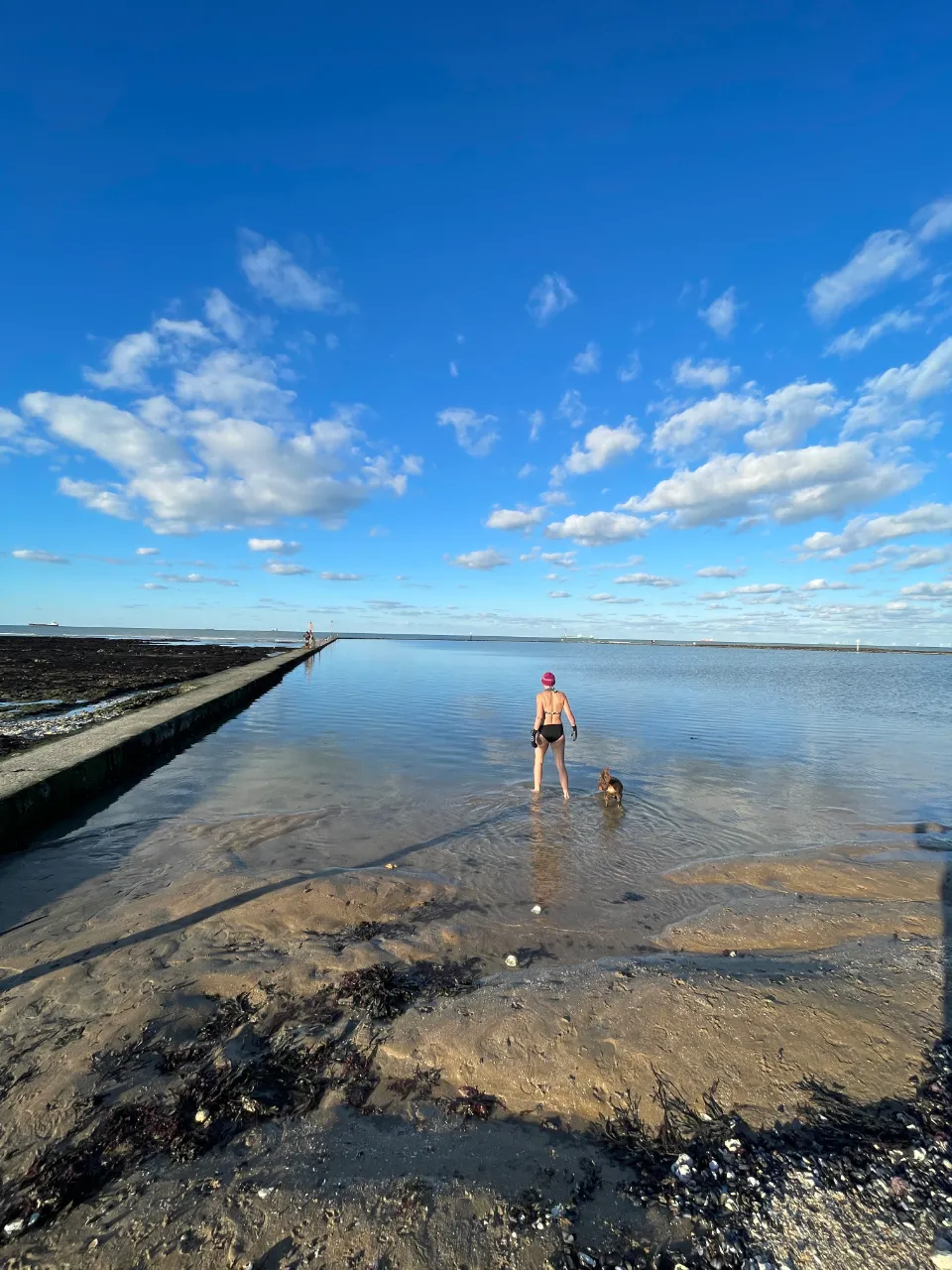How to be confident in yourself is something most of us aspire to. Want a stronger sense of trust in your own abilities and judgment or, to feel more control of your life? Yes please! Confidence in yourself can mean many things and losing confidence, especially after a knock-back, can take a while to get back. Which got me thinking, what if it’s not being confident in yourself that’s necessary here, but more a healthy dollop of self-awareness, to get the same or even more sustainable results?
What is it to be confident in yourself?
In The Confidence Code, Katty Kay (the BBC US Special Correspondent and co-host of The Rest is Politics US), and journalist Claire Shipman, describe confidence as a bridge between thought and action, an ability to take the leap even when doubt creeps in.
The Cambridge Dictionary defines it as;
“the quality of being certain of your abilities or of having trust in people, plans, or the future”.
My brilliant sister Hannah told me that being confident in yourself is a feeling of self-belief and trust, you appear to know what you’re doing and do it well, and that people around seem to be accepting of it. She described how she was ‘the calm’ in a crisis at work recently – the go-to person who stepped up. Hannah wanted to avert the crisis, yet she wasn’t certain of her abilities nor the future outcome, as per the dictionary definition. So what did Hannah have?

Inner Confidence, Outer Confidence & the mismatch
I notice two types of confidence in people: inner and outer confidence. Hear me out;
- Inner confidence – how we feel about ourselves on the inside
- Outer confidence – what we portray to others
When these two align…BOOM! You’re on fire – you’re in control, stuff happens, there’s an ease and you might feel like you have impact. But when there’s a gap between your inner and outer confidence it can feel like a mismatch; what you portray to others is not how you feel inside and you might struggle.
Example; you’re presenting to the board, which is a big deal. You feel out of your comfort-zone, lacking confidence, you’re sweating, the adrenaline has kicked in and your inner critic is going bat-shit crazy in your head telling you that you’re going to mess it up. And yet the board has no idea, thinks you’re great, you pull it off – much to your own surprise.
In this instance, and it’s common in my coaching conversations, we;
- Doubt our abilities/capabilities
- Have negative self-talk taking over , or
- Have practical personal or work challenges impacting us
This, despite our vast knowledge and huge experience. Lacking confidence hurts.
Self-awareness for lasting confidence?
This mismatch left unchecked, can cause symptoms of stress and impact our mental wellbeing. This is where self-awareness is crucial because we really can positively influence how we feel, through how we think, and in turn, how we act. It’s a key theme I notice in my coaching conversations, particularly with women in leadership, women with caring responsibilities, people who are neurodivergent and people in toxic work environments lacking psychological safety.
So, is building confidence really what we need to focus on? Or would developing self-awareness to enhance confidence have more sustainable results?

Back to the Cambridge Dictionary, which defines self-awareness as;
"good knowledge and judgment about yourself"
I notice through my clients’ coaching outcomes that better self-awareness helps you to;
- Make better informed decisions (read more here)
- Improve your communication and relationships with others
- Understand your own strengths to use more consciously and effectively
- Understand your weaknesses to ask for help and delegate
This was Hannah at that moment of crisis. Self-awareness seems to create lasting confidence, trust and belief in yourself.
Self-awareness: 3 key points
I invite you to consider these 3 points:
1. Self-awareness gives you clarity. It’s easy to get caught up in trying to appear confident. But understanding how you truly present yourself—both to yourself and others, allows the real you to step forward. Ask those who know you best – try this powerful exercise, Ask 5 People Exercise, but I suggest this is done with the support of a Life Coach, HR professional or someone similarly trained to facilitate feedback, just as you might with a 360 degree appraisal.
2. Confidence without good self-awareness is fragile. Without self-awareness, confidence can be fragile or tip to other extreme, arrogance. You may project an outward sense of confidence, but if you lack an accurate understanding of who you are, what you stand for (values) and where your strengths lie, it can crumble under pressure.
3. Self-awareness nurtures your progress. The ability to pause, reflect, and grow builds your inner and outer confidence, which in turn supports a more sustainable approach to your personal and professional progress. Like Hannah, you could make better informed decisions because potentially your playing to your natural strengths which demonstrate inner confidence, rather than relying on fleeting feelings of outer confidence to get you through.
Coaching Questions on self-awareness for confidence
- How might receiving constructive feedback from those who know you through the Ask 5 People exercise, impact your self-awareness and confidence?
- How do you rate your inner confidence? And outer?
- Write about 2 examples where you trusted your inner confidence to guide your decisions, rather than relying on fleeting feelings of outer confidence? What strengths and skills do you notice? (as many as possible)
- How do you prioritise your mental wellbeing? (Read here about how I realised getting outdoors was an essential for my mental wellbeing, and how of course, it’s now my job).
Viv Groskop’s How to Own the Room podcast echoes this idea. It’s not about ’faking it till you make it’, but understanding how to own your space in a way that’s more you. Confidence is important, but self-awareness might be the real foundation on which lasting progress and success is built.
Instead of asking, “How can I be more confident?”, maybe a more rounded question is, “How do I become more self-aware in order to build my self-confidence?” Additionally consider the psychological safety aspect; “Am I currently supported by those around me, to allow my voice to be heard?” Confidence follows when we understand ourselves more deeply and our personal and professional relationships are supportive and healthy. That’s when we can act with clarity, purpose, and authenticity. It not only shows outwardly, but feels GREAT on the inside.
Thank you my darling Hannah x

